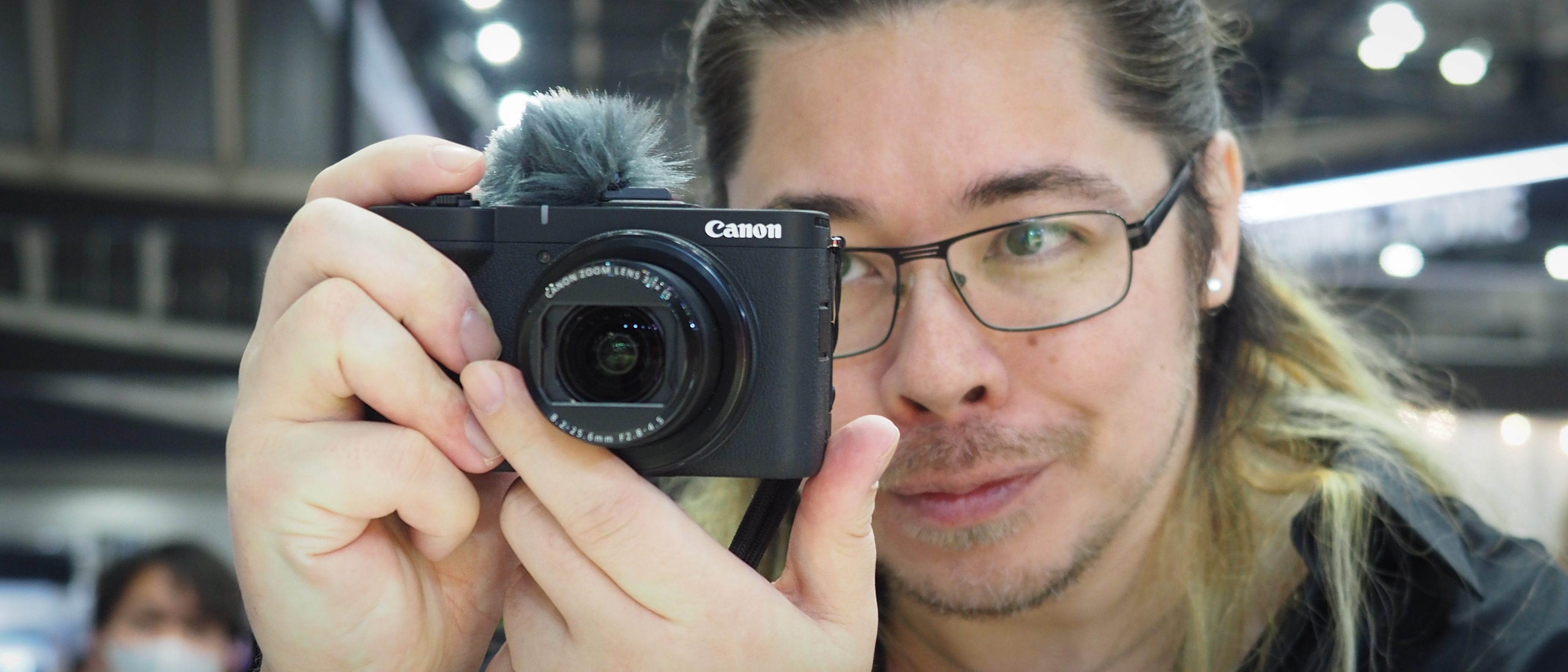Early Verdict
It's still early days, and I need WAY more time to be able to say for sure, but I think the Canon PowerShot V1 could be about to eat the Sony ZV-1 II's lunch. It has a wider zoom, a faster burst rate, a slightly bigger sensor and slightly more resolution – and, from my brief time with it, autofocus that's at least on par. It's a vlogger's camera, not a photographer's, and I think the market will gobble it up.
Why you can trust Digital Camera World
The Canon PowerShot V1 is a camera that, while not quite what I expected, is one that the market is probably going to adore.
It was believed that the Canon PowerShot V1 would be a traditional compact camera, along the lines of the Canon PowerShot G7 X Mark III, but it's actually more of a compact vlogging camera along the lines of the Sony ZV-1 II.
While the market expected Canon to launch a compact that would replace the G7 X, instead it's launched one that complements it – and threatens the stranglehold that the ZV series previously enjoyed on cameras for vlogging.
Indeed, with the Canon EOS R50 V taking on the Sony ZV-E10 II as its interchangeable lens option, the brand is doubling down on the creator segment. So how does the Canon PowerShot V1 far in this brave new world?
Canon PowerShot V1: Specifications
Sensor | 1.4-type CMOS |
Lens | 8.2-25.6mm f/2.8-4.5 (35mm Equivalent: 16-50mm stills / 17-52mm video) |
Viewfinder | No |
Screen | 3.0-inch fully articulating touchscreen, 1.04 million dots |
Image Stabilization | Up to 8.0 stops |
ISO | 80-51,200 (102,400 extended) |
Autofocus | Dual Pixel CMOS AF for PowerShot |
Max Burst Speed | 30fps electronic • 15fps mechanical shutter |
Video | 4K 60p (cropped), 4K 30p, FullHD 120p |
Battery | LP-E17 |
Connectivity | USB-C, micro HDMI, mic jack, headphone jack, Multi-Function Shoe |
Dimensions | 118.3 x 68.0 x 52.5mm |
Weight | 379g body only |
Canon PowerShot V1: Price & availability
The Canon PowerShot was initially launched in Asia in late February, before rolling out worldwide a month later – with shipping due to commence on April 08 in the US and April 10 in the UK.
The camera is priced at $899.99 / £959.99 / AU$1399.95 which, notably, is slightly more than that of the interchangeable lens EOS R50 V.

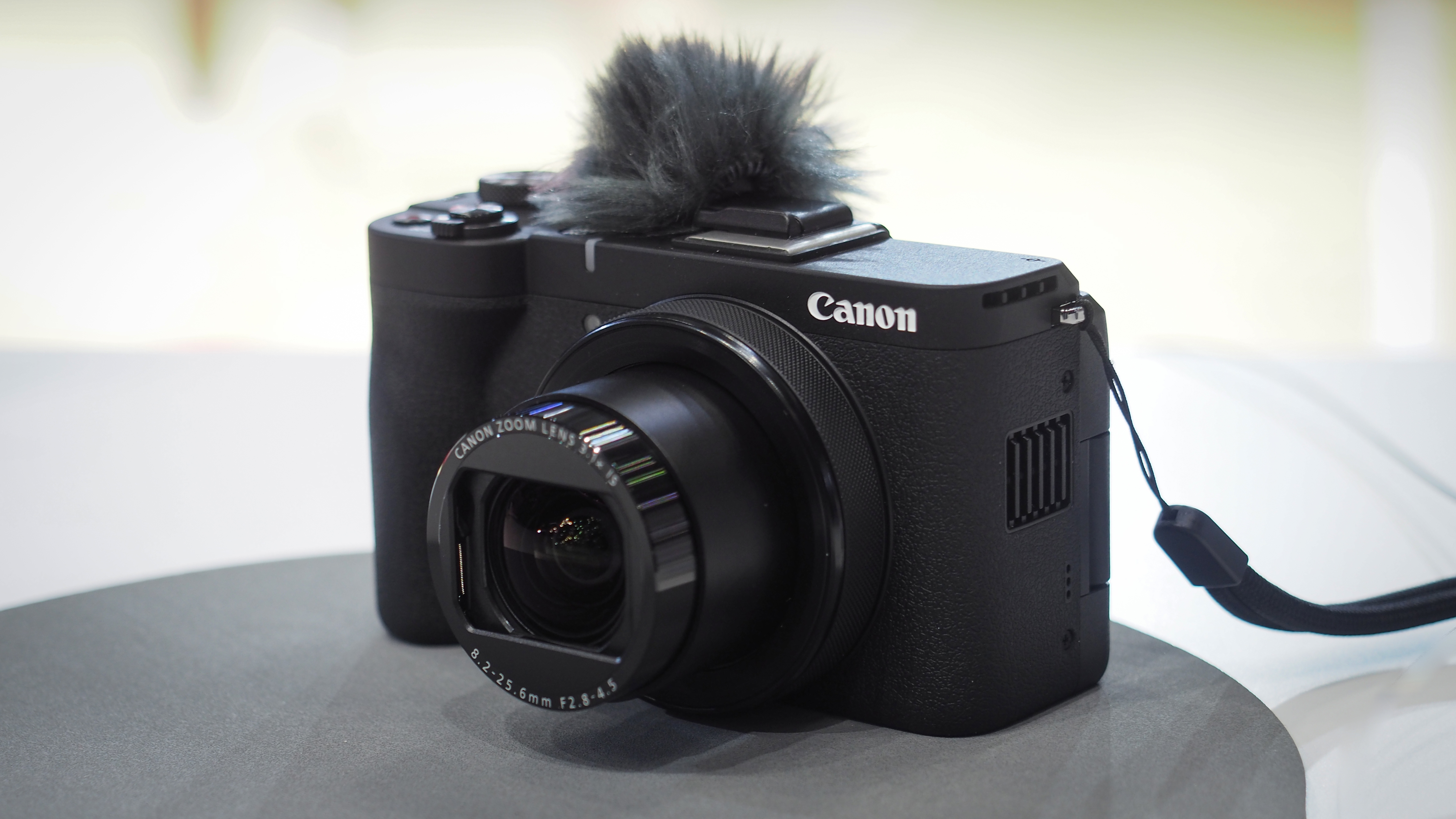
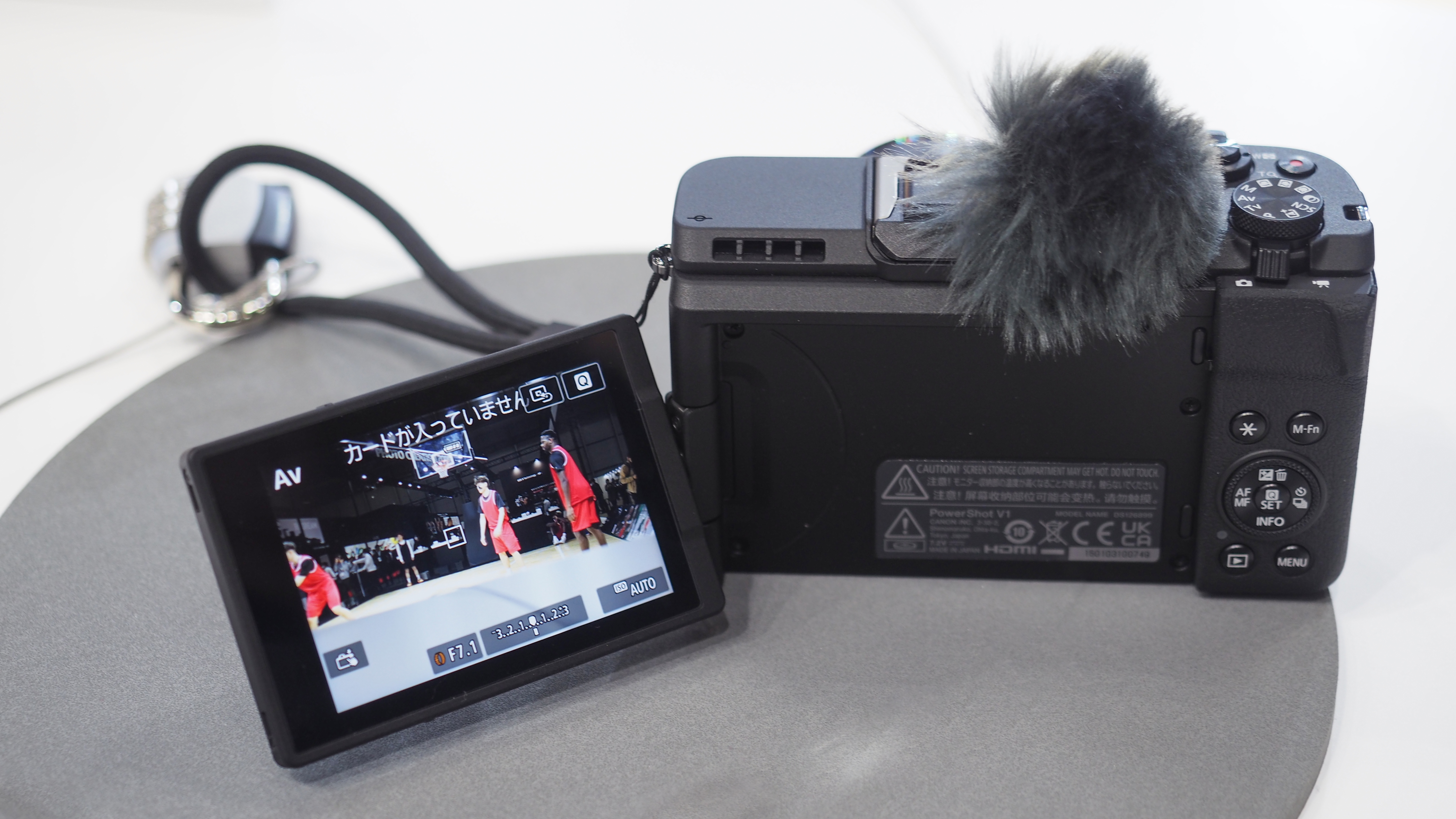
Canon PowerShot V1: Performance
In addition to testing the Canon PowerShot V1 at CP+ 2025 in Japan during its original launch, I also had a brief session at Canon's headquarters ahead of its western release. I'm looking forward to a more thorough test, where we'll also put the camera through our lab, but here are my first and second impressions (I also recommend watching my video overview below for a quick visual introduction).
The 16-50mm zoom range is unmistakably intended for video – specifically, vlogging. I don't think it's any coincidence that it mimics the 18-50mm focal range of Sony's ZV-1 II. Nor do I think it's happenstance that the V1's sensor is a 22.3MP 1.4-inch affair – one that offers twice the area of the 1.0-inch 20.1MP sensor in the ZV-1 II.
(It's worth noting that you can shoot in a 1.4x crop mode, where the zoom effectively becomes 23-71mm, though I wouldn't recommend it for the drop in quality.)
An important thing to point out, which you can hear in my sample videos below, is that when recording audio through the V1's mic you can hear an electronic whir when you zoom the lens in and out, along with a click as the mechanism reaches each end of the zoom range. Obviously capturing audio externally will get around this issue, but it's worth noting for anyone using the camera on its own.
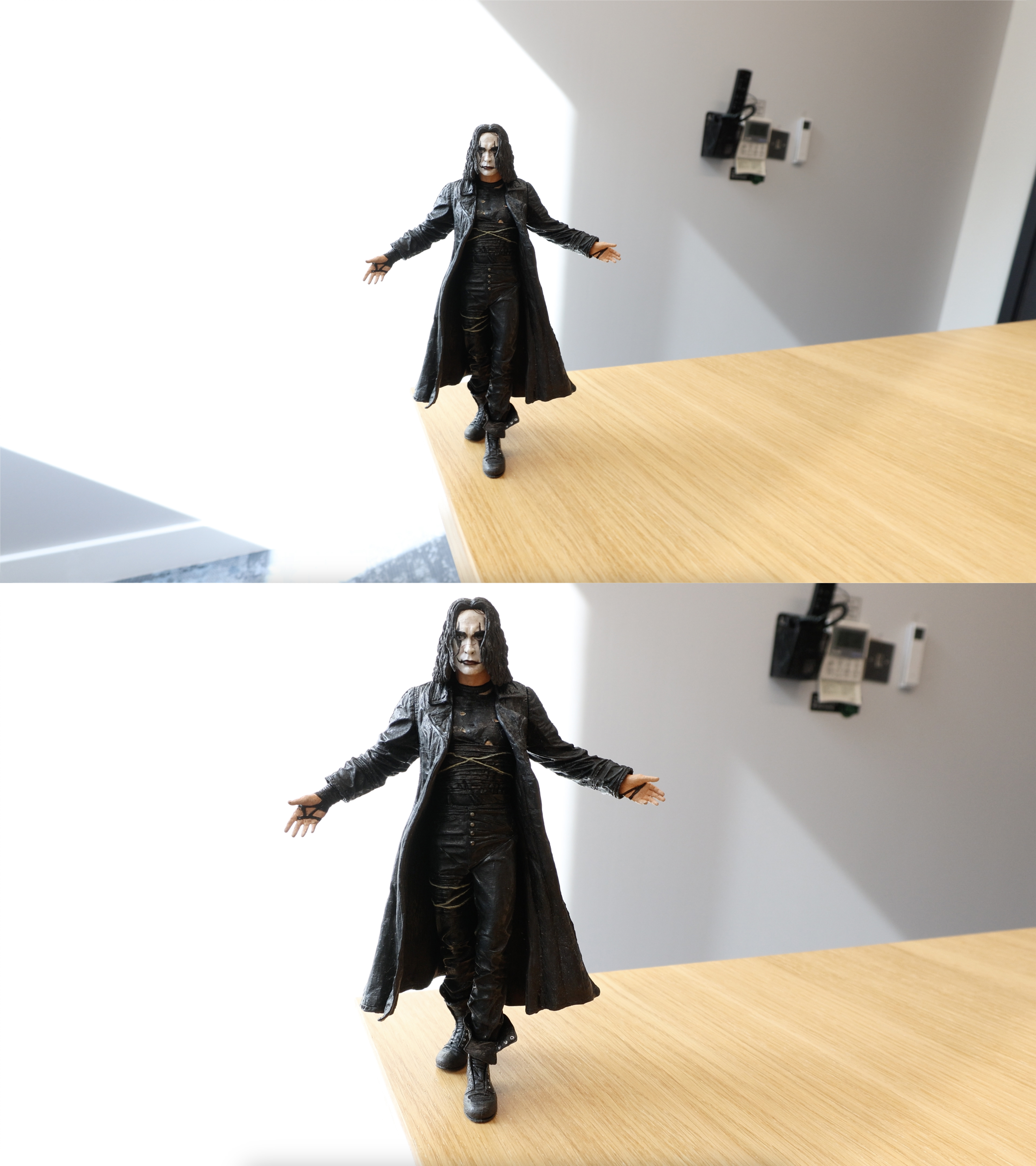
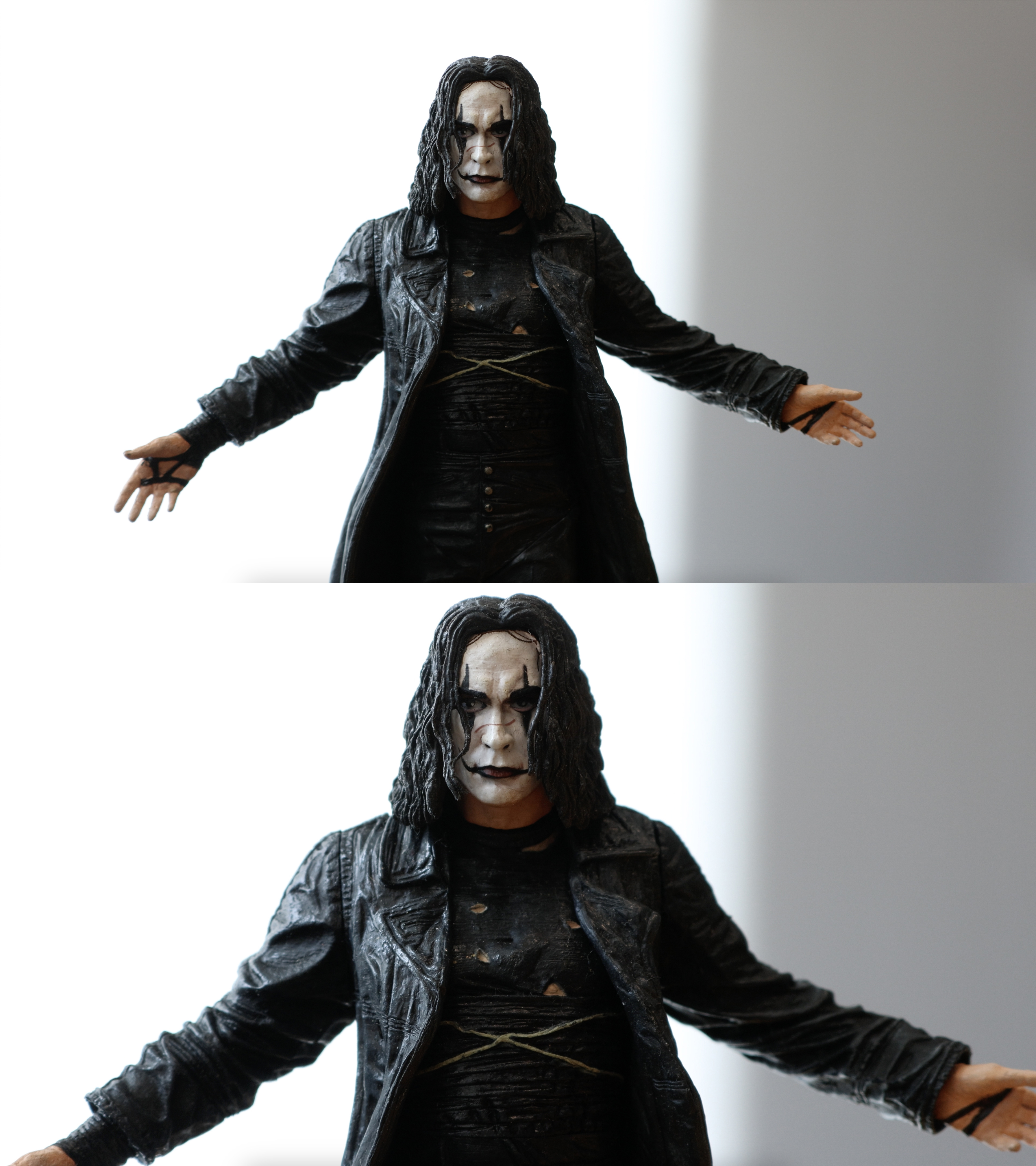
It's clear, then, that the PowerShot G7 X Mark III will remain the obvious option for photographers with its 24-100mm lens. Though the V1 is no slouch for imaging, as its sensor (similar in scale to those found in the best Micro Four Thirds cameras) is much larger and produces pleasing images all the way up to bursts of 30fps.
This is complemented by the Dual Pixel AF / Digic X processor combo that, while not the full-fat versions found in the EOS R cameras, is nonetheless very impressive.
Left to its own devices it is capable of locking onto the main subject in a given setting (though it wasn't always able to keep track of the fast basketball I was shooting), and it's suitably sticky when you tap the screen and select a subject to follow.
Watch the tail end of my below hands-on video and you'll see the subject detection working its magic – and it's particularly accurate during the 30fps bursts of the cheerleaders. Also worth noting is that the buffer seemed to go on forever, so long bursts are no problem.

Still, it's video that the Canon PowerShot V1 is clearly intended to shoot. That 16-50mm zoom – which becomes 17-52mm when shooting 4K 30p in 16:9 – is perfect for vlogging.
As you see in the video below, held at arm's length it enables you to squeeze loads into the frame – though be aware that shooting at 4K 60p invokes a crop, as does shooting with features like auto horizon-levelling and digital image stabilization.
The autofocus is very honest, and understands particularly when you are filming yourself in "selfie / vlogger mode", keeping the focus on your face and eyes, and not getting distracted by objects or subjects behind or around you.
You may have noticed the fan on the side of the body – the V1 has an active cooling system that keeps the camera from overheating to an impressive degree. I've broken down the recording limits in a table below; all things being equal, the camera can record a single shot for a maximum of 6 hours with high frame rate turned off or 1 hour 30 minutes with it turned on.
Canon PowerShot V1: Video overview
STANDARD TEMP | Row 0 - Cell 3 | ||
Video resolution | Fan off | Fan auto | Fan high |
4K 60p (crop) | 25 mins | 35 mins | 45 mins |
4K 30p | 40 mins | Unrestricted | Unrestricted |
FullHD 60p | TBC | Unrestricted | Unrestricted |
| Row 5 - Cell 0 | Row 5 - Cell 1 | Row 5 - Cell 2 | Row 5 - Cell 3 |
HIGH TEMP | Row 6 - Cell 1 | Row 6 - Cell 2 | Row 6 - Cell 3 |
Video resolution | Fan off | Fan auto | Row 7 - Cell 3 |
4K 60p (crop) | 40 mins | Unrestricted | Unrestricted |
4K 30p | 55 mins | Unrestricted | Unrestricted |
FullHD 60p | TBC | Unrestricted | Unrestricted |
Canon PowerShot V1: Sample images

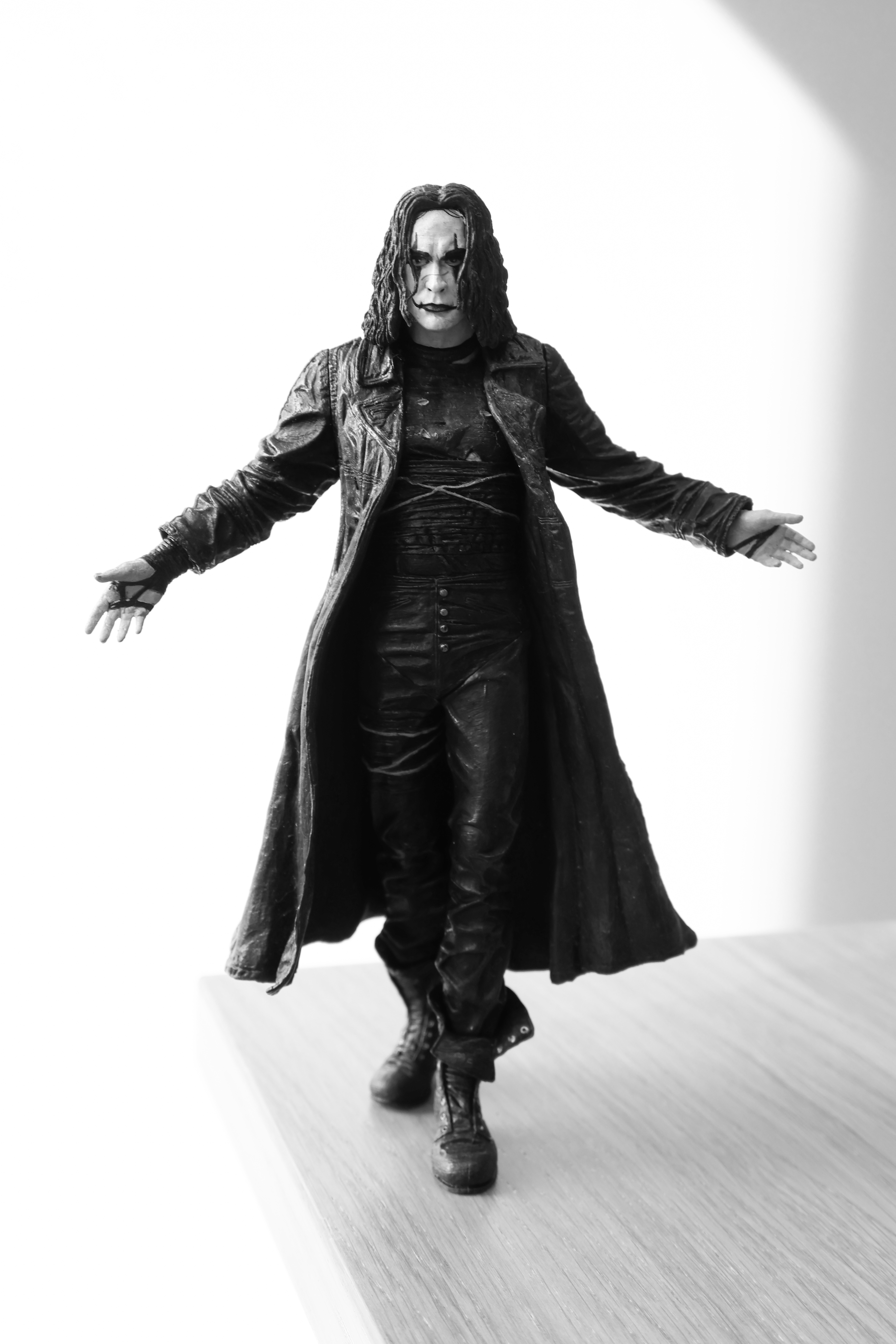
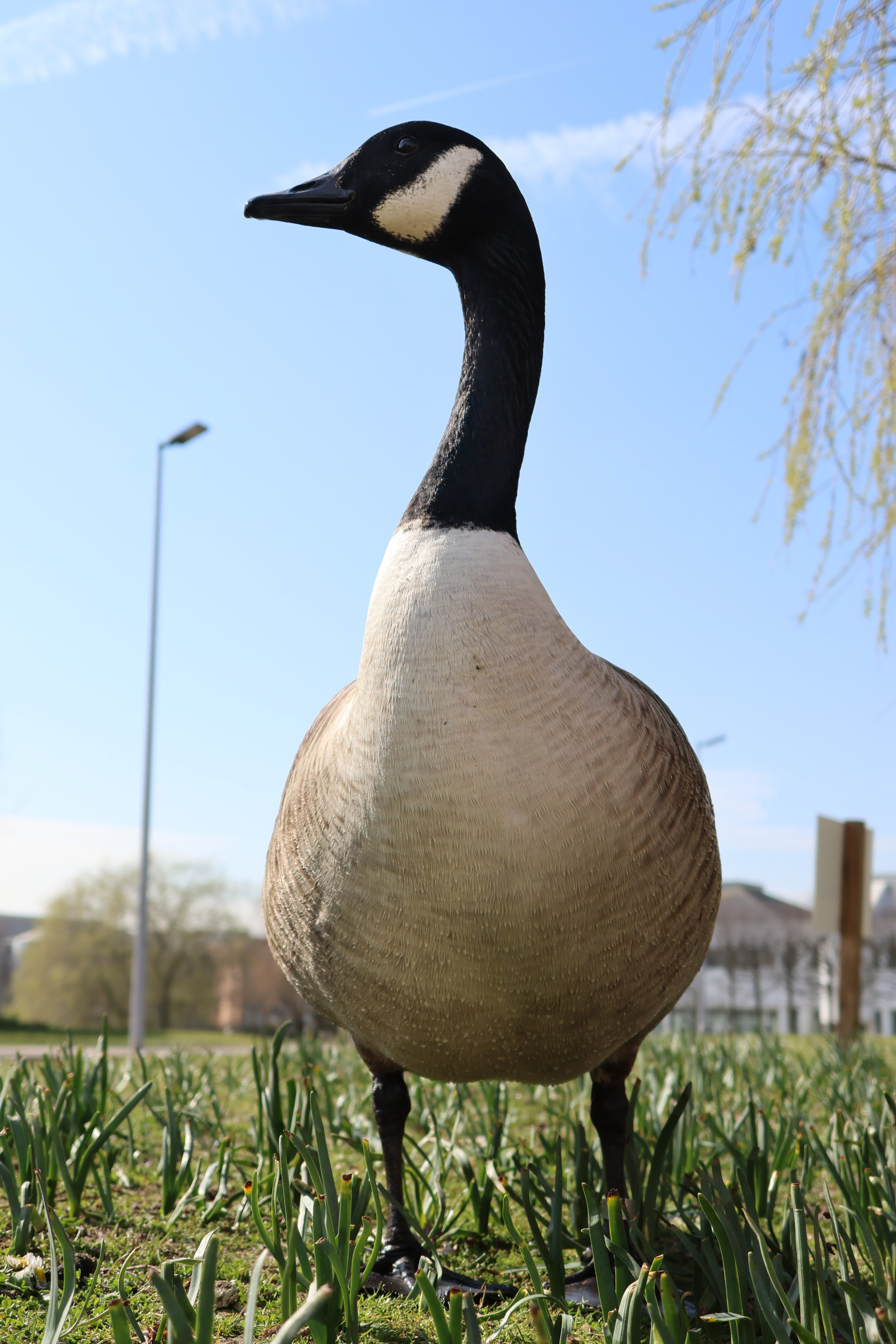
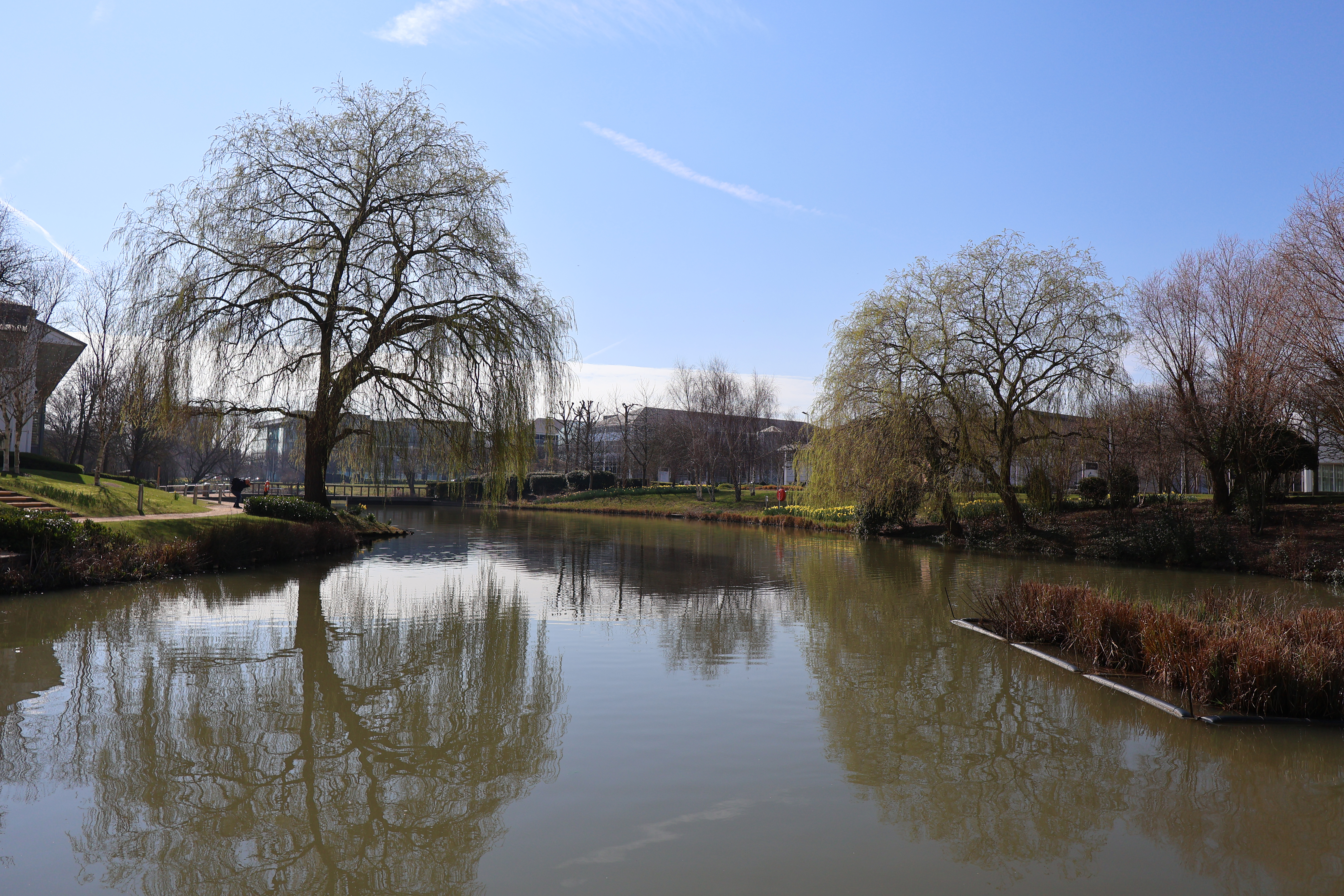

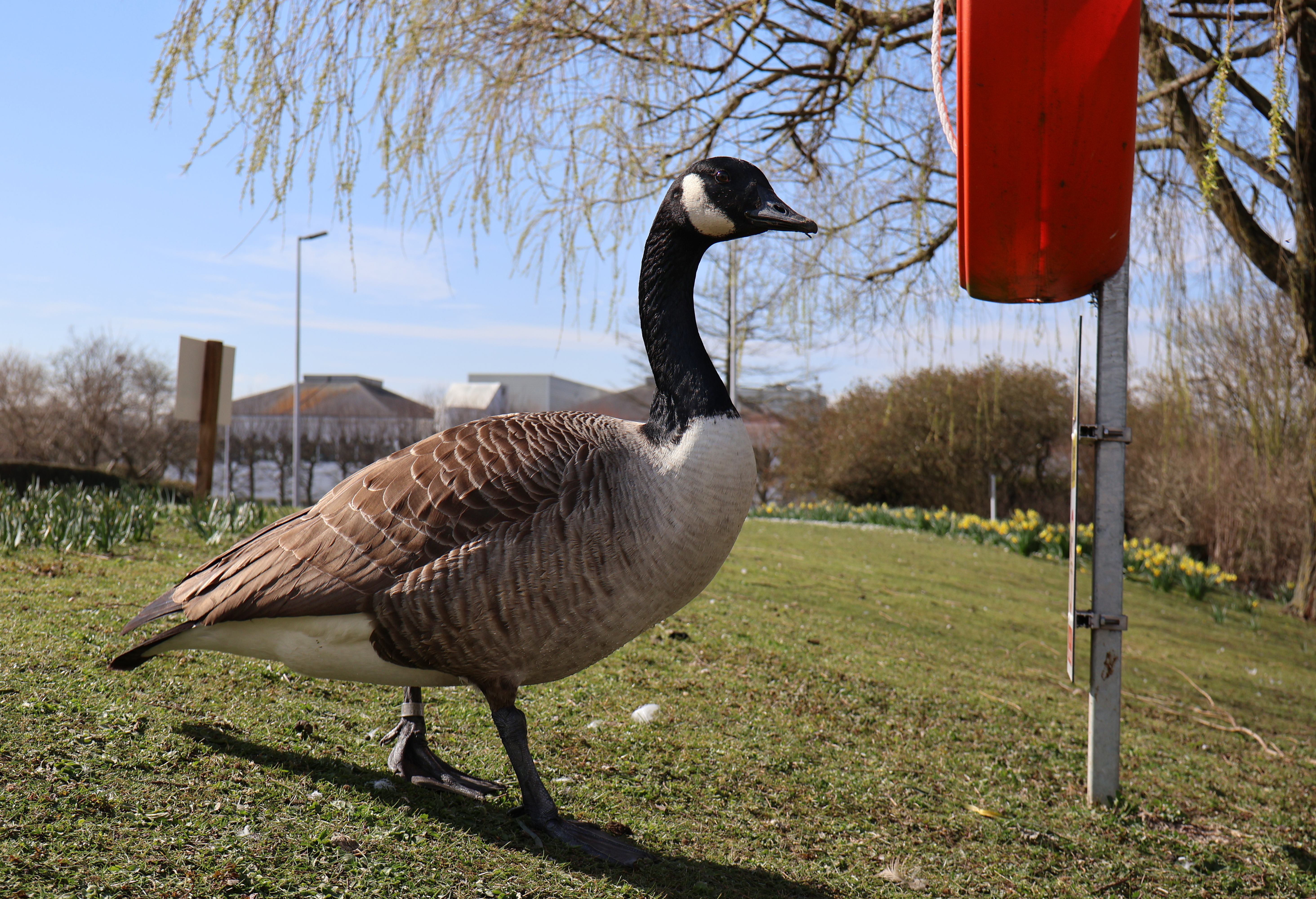
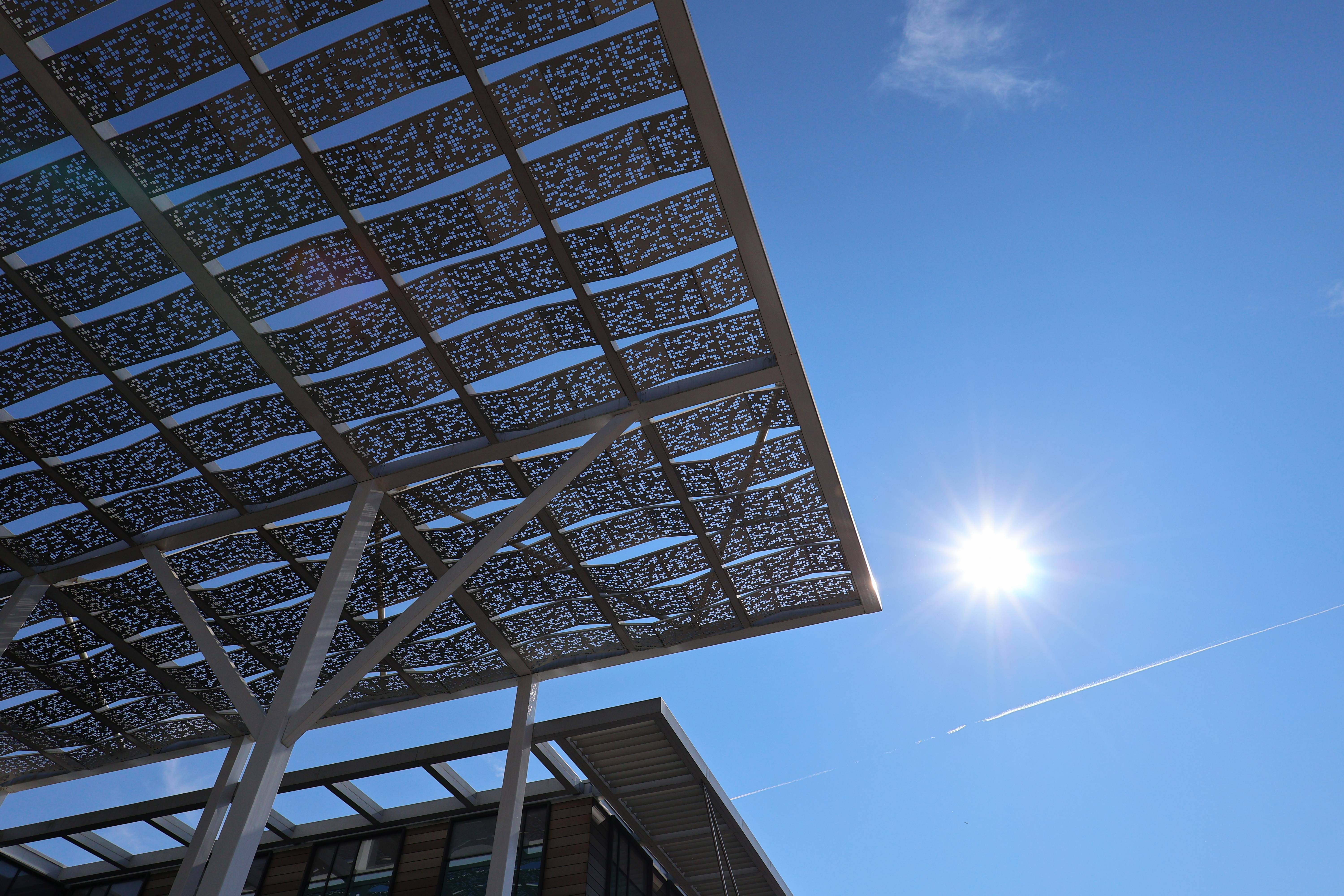

Canon PowerShot V1: Early verdict
The Canon PowerShot V1 may not be the compact photographic camera that people were clamoring for – but the Sony ZV-1 II may be in trouble. The PowerShot V series is aimed at vloggers, and the V1 is aiming squarely at the ZV-1 II.
I was impressed by the tenacity of the autofocus, even in prolonged 30fps bursts, and the 16-50mm zoom range is simply perfect for vlogging and everyday content creation. If the Canon PowerShot V10 is too basic for you but the Canon EOS R50 V is too advanced, I think the V1 is going to be perfect for you.
I haven't been able to properly test Canon Log 3 on this new sensor, nor the physical ND filters, but right now the Canon PowerShot V1 looks like it might be the new force to reckon with in the vlogging compact sphere.

James has 22 years experience as a journalist, serving as editor of Digital Camera World for 6 of them. He started working in the photography industry in 2014, product testing and shooting ad campaigns for Olympus, as well as clients like Aston Martin Racing, Elinchrom and L'Oréal. An Olympus / OM System, Canon and Hasselblad shooter, he has a wealth of knowledge on cameras of all makes – and he loves instant cameras, too.
You must confirm your public display name before commenting
Please logout and then login again, you will then be prompted to enter your display name.
